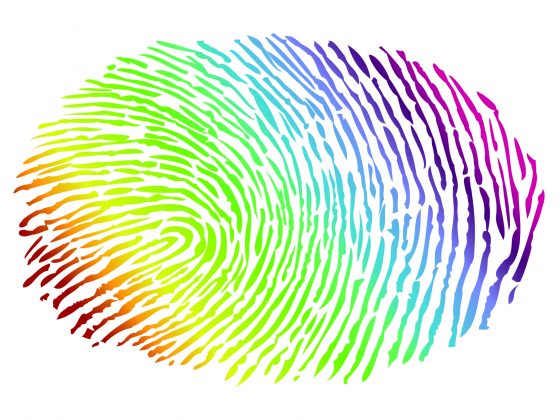Somehow, “identity” has become a loaded term. Politicians, including some on the left, bemoan the influence of “identity politics,” an even more loaded term, on our political system. Some have the perception that a person declaring an identity is just someone looking for attention for being a precious little snowflake. But identities have real-world practical implications that affect individuals and societies at fundamental levels.
The Basics
Identity politics generally refers to the politics of groups like LGBT people, ethnic and racial minorities, and women. It’s about looking after the interests of people who are generally or historically discriminated against by the broader society.
The basic criticism of these movements is that they are issues that only affect some people and not society as a whole. Why talk about niche interests when we have national security and the economy to worry about? Also, it’s said that identity politics atomizes society into small groups instead of uniting us into one body politic.
There is No Default Identity
The conception is that minorities are the only ones declaring an identity – that the majority is the default, neutral position. But “heterosexual” is also an identity, as are “male” and “female.”
A family member once told me that her life doesn’t revolve around her sexuality like gay people’s do. She is married to a man and gave birth to multiple children at a time when artificial insemination wasn’t common practice. She would certainly say that “mother” is an important part of her identity; lesbians can certainly be mothers, but her motherhood came as a direct product of her sexuality. Her religion (a huge part of her identity) all but requires her to be married to a man; she could not be a member in good standing in her religion if she were not heterosexual. Her husband is head of the household because he is a man and she is a woman; she was the primary caregiver of her family, her husband was the primary breadwinner.
Being a cisgender, heterosexual woman is fundamental to her identity, worldview, and lifestyle. She just doesn’t see it because she thinks of it as the default.
How much of how you see yourself is dependent on your gender and who you are attracted to? If you’re being honest with yourself, you’ll have to say it’s a massive amount.
The same goes for ethnic identity. “White” is not default. It is an identity in its own right with the exact same level of importance to a person’s experience and worldview.
This is about as clear an example of privilege as I can think of: the privilege of being considered the default that everyone else exists in contrast to.
Who is Affected by Identity Politics
The fact is that identity politics affects a whole lot more people than those who disparage it acknowledge.
According to the last census, non-Hispanic whites make up 62.6% of the population of the U.S. That means about 31% are white men. Of course, some of those white men are sexual and gender minorities. So it looks like we have less than 30% of the country who are supposedly not affected by identity politics.
These are not niche interests of a small minority. Taken together, they represent the vast majority of Americans.
So why are these considered less-important side issues? Well, look who controls the dialogue. Look who controls the government. When politicians say they are interested in the issues that affect all Americans, they are referring to the interests they perceive as affecting everyone because they are the issues that affect them and those like them. It’s perfectly natural and human; it’s how the human brain works.
Since straight white men shape how we talk about things, their reality becomes the reality of the “average” American even though they are not average in the slightest.
Yes, economics affects all Americans regardless of gender, sexual orientation, gender identity, or ethnicity. The point is not to ignore the economy or any other issue that affects all of society together. The point is that the issues involved in “identity politics” cannot be disregarded or minimized in importance just because every single issue doesn’t affect every single individual.
Criticisms of Identity Politics
The fear some people have about identity politics is that it will act as a rift between groups. If a person identifies strongly as African-American, goes the thinking, that will take away from their identity as just American.
As Adam Ellwanger argues in the American Conservative in an article entitled “Why Identity Politics Kills Democracy” (which, I mean… come on), “Although politics is inherently identitarian, we must ensure that citizens align themselves with the proper identity category: citizenship. Throughout American history, nationalism – pride in our shared identity as Americans [emphasis theirs] – has done the ‘integrative’ work.”
The implication is that one can only have an American identity or an LGBT identity. American or an ethnic or racial minority. American or female is especially absurd. It ignores the fact that a person can advocate for minority rights while also caring about national security, the economy, and other issues that affect everyone equally.
Unintended Consequences
Unfortunately, by seeking to juxtapose a national identity against other identities, critics of identity politics can fulfill their own prophecy. When I was conducting research on gay identity in Central and Eastern Europe, I spoke to a number of people who felt alienated from their national identity because they felt they were being pushed away by the politics of their country.
Politicians in some of these countries routinely villainize LGBTQ people as agents of cultural imperialism – in other words, outside forces. Protesters regularly greet gay pride parades and other LGBTQ events with national flags and singing of national anthems, showing their binary perception of nationalism and gay identity.
Most of the people I interviewed loved their country and were saddened by the apparent rejection by their societies. As a result, many looked to the European Union’s advocacy on their behalf, creating a strong emotional tie to the EU and a corresponding European identity. Still, most maintained a national identity to a large degree, they just appended it with a European identity and gay identity.

Multiculturalism Without Identity Politics?
Really, Ellwanger (and those with similar perspectives) may not be as far away from embracing identity politics as he thinks. He says, “We should be thankful that the openness of liberal democracy ensures that the LGBT community and other cultures can be recognized and respected in America. Any serious thinker knows that having a society that isn’t multicultural is an impossibility – there are always already a multitude of sub-cultures with divergent values… Toleration and respect for cultural differences is built into the Enlightenment ideals that informed the Founding. And by that old, classically liberal understanding, multicultural society is undoubtedly a strength of the West.”
What he doesn’t acknowledge is that the respect that LGBT people currently enjoy within (parts of) American society was fought for through identity politics. Without identity politics, homosexuality would still be illegal. Without identity politics, African-Americans would still be prevented from using the same facilities and services as white people. Without identity politics, women would not be allowed to enter the workforce in the ways that they can.
Few conservatives would advocate for women to be forced back into the kitchen, so to speak, but they would argue that a clear declaration of equal rights would lead to societal instability. Prominent conservatives may not advocate for homosexuality to become illegal again, but they will say that stronger discrimination protections for LGBT people are a dangerous infringement upon religious rights.
Conservatives are dragged forward kicking and screaming by identity politics, but once that step forward has become the status quo, they will fight tooth and nail to defend that new baseline. And any step forward from that new status quo is, as Ellwanger puts it, “selfish” identity politics.
Identity Politics on the Right
Interestingly, identity politics as a term is usually framed as a leftist issue. But issues on the right are based upon identity just as often. “Christian” is an identity, and though plenty on the left also identify as Christian, it is generally the religious right that sees themselves as an oppressed minority who need to fight for their rights through politics. They perceive a war on Christianity within the U.S., despite the fact that the vast majority of Americans are Christian.
They feel oppressed because society is not letting them oppress others as much as it used to. They feel oppressed when legally obligated to bake a cake, while in many parts of the country gay people can legally be fired from their jobs for being gay, and trans women (particularly those of color) are being murdered in the streets at horrifying rates. They feel that their perceived oppression needs to be addressed through a religious rights movement.
How is fighting for African-American interests considered identity politics while fighting for so-called religious rights not? It is just as based upon identity (though it is a chosen identity and not based upon an inherent trait). The interests of the religious right are not the interests of all people. In fact, they don’t even impact all Christians, since many Christians don’t agree with the political priorities of the religious right.
It’s also important to remember that things like “gun owner” are also identities that certainly impact politics. Not everyone who believes in strong gun rights defines themselves that way, but many do.
Identity politics on the right has recently seen its ultimate form of ridiculousness in the “men’s rights movement,” the online movement of men who feel oppressed because… well, I’m not really able to make sense of it, to be honest.
No Really, It’s Everyone
At the end of the day, identity politics in one form or another affects all of us. Pretending it’s a sideshow distraction of little consequence is not in anyone’s interest.







